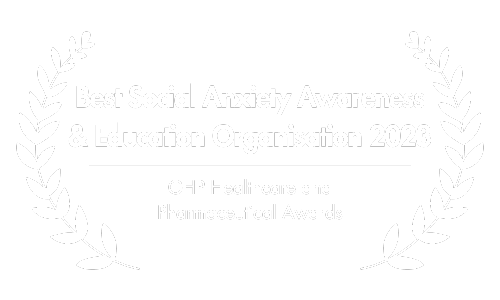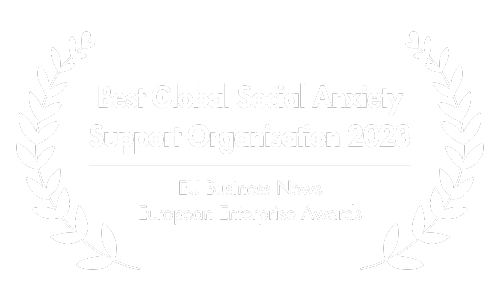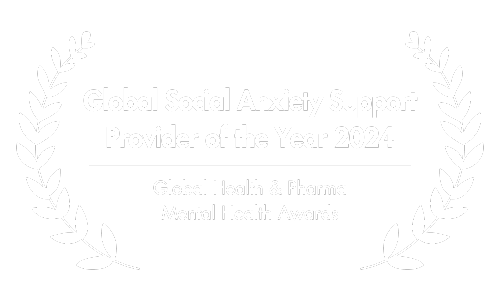Compassion-Based Therapies: A Surprising Antidote to Social Anxiety
This article contains recommendations for several books, a meditation app, and an online therapy provider that help with social anxiety. If you purchase product services through this link, you may receive a significant discount and we will receive a commission.
Social anxiety, a condition characterized by an intense fear of social situations and being judged by others, can be a debilitating experience for many.
It’s not just about feeling shy or nervous before a presentation. For those grappling with social anxiety, everyday interactions can feel like insurmountable challenges, leading to isolation, missed opportunities, and a diminished quality of life.

In the quest to find effective treatments for social anxiety, mental health professionals and researchers have turned their attention to the power of compassion.
Compassion, defined as a deep awareness of the suffering of oneself or others, coupled with the wish to relieve it, has been at the heart of many ancient wisdom traditions.
Today, it’s emerging as a cornerstone in modern therapeutic practices.
Compassion-based therapies, such as Compassion-Focused Therapy (CFT) and Mindful Self-Compassion (MSC), offer a fresh perspective on addressing the root causes of social anxiety.

These therapies don’t just aim to alleviate symptoms; they strive to nurture a kind, understanding relationship with oneself, transforming the inner critic that often fuels anxiety into a compassionate ally.
In this article, we’ll delve into the world of compassion-based therapies, exploring their principles, how they work, and the research-backed evidence of their effectiveness in treating social anxiety.
Whether you experience social anxiety or are simply curious, we invite you on this journey of understanding and hope.
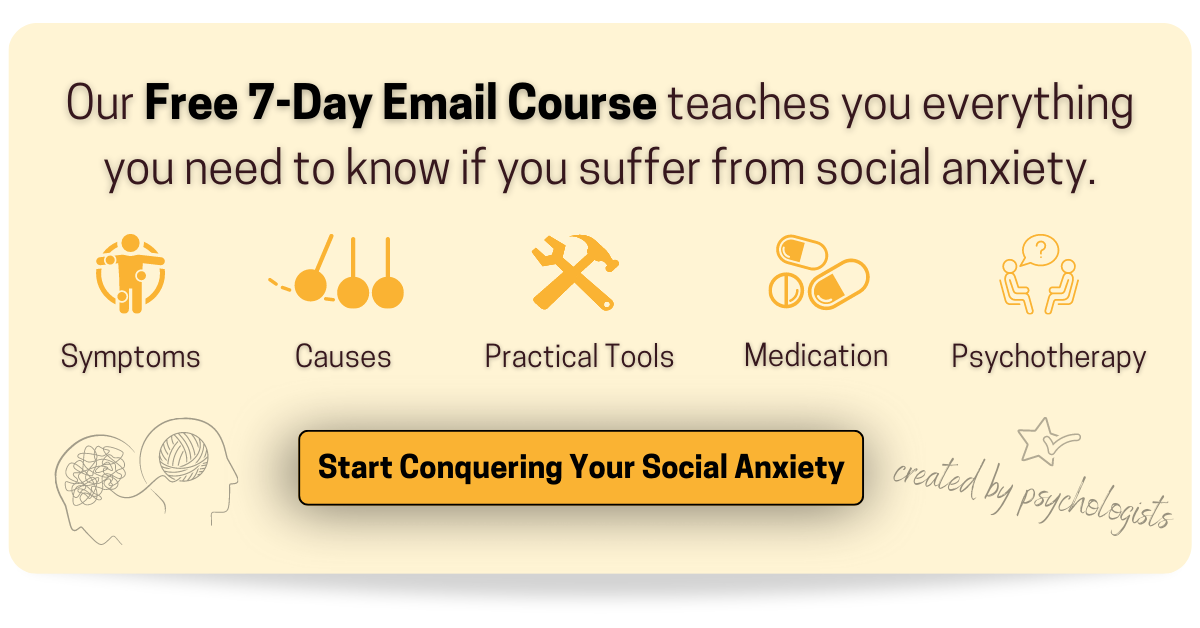
A. Understanding Compassion-Based Therapies
At the heart of compassion-based therapies lies a simple yet profound truth: cultivating kindness towards oneself can be transformative.
But what does it mean to be compassionate, especially towards oneself, and how does it relate to therapy?
Defining Compassion
Compassion is more than just a feeling; it’s an active response.
It involves recognizing suffering (whether it’s our own or someone else’s) and feeling a genuine desire to alleviate that suffering.
This is not to be confused with pity or feeling sorry for someone. Compassion involves empathy, understanding, and a non-judgmental stance.

The Role of Self-Compassion in Mental Well-being
While compassion can be directed towards others, self-compassion focuses on directing these feelings towards oneself.
Dr. Kristin Neff (2007), a pioneering researcher in the field, defines self-compassion as being kind and understanding towards oneself in instances of pain or failure, rather than being harshly self-critical.
It involves recognizing that imperfection and suffering are shared human experiences, allowing us to feel connected with others in our moments of pain.
For individuals with social anxiety, the inner critic can be particularly loud and persistent.
Thoughts like “I’m not good enough,” “I’ll embarrass myself,” or “People will judge me” are common.
Self-compassion offers a way to counteract these negative self-assessments, providing a soothing and nurturing inner voice.

Compassion-Based Therapies: A New Paradigm
Emerging from the intersections of cognitive-behavioral therapy, evolutionary psychology, and mindfulness practices, compassion-based therapies offer a holistic approach to mental well-being.
They recognize the evolutionary basis for our negative self-talk and self-criticism, understanding that these patterns were once adaptive for our ancestors.
However, in the modern world, they often lead to unnecessary suffering.
By cultivating self-compassion, these therapies aim to rewire our responses to perceived threats or failures, replacing self-criticism with understanding and self-kindness.
This shift in perspective can be particularly beneficial for those with social anxiety, where the fear of judgment and negative evaluation is paramount.

B. Compassion-Focused Therapy (CFT)
Compassion-Focused Therapy, often abbreviated as CFT, is a pioneering approach that specifically targets and addresses feelings of shame, self-criticism, and the negative self-to-self relationship that many individuals, especially those with social anxiety, grapple with.
Origins and Principles of CFT
Developed by Dr. Paul Gilbert (2020), CFT integrates techniques from cognitive-behavioral therapy, insights from evolutionary psychology, and principles from various Eastern contemplative traditions.
At its core, CFT recognizes that our brains have evolved with certain tricky aspects, like a propensity for negative bias, which in today’s world can manifest as an overly harsh inner critic.
The therapy is grounded in the belief that compassion can be cultivated and harnessed as a driving force for healing.
It’s not just about changing negative thought patterns, but about fundamentally altering how we relate to ourselves.

How CFT Works
- Understanding the Evolutionary Perspective: CFT starts by helping individuals understand the evolutionary basis for their feelings of anxiety and self-criticism. Recognizing that these patterns once had adaptive value for our ancestors can reduce self-blame.
- Cultivating the Three Flows of Compassion: CFT emphasizes three types of compassion:
- Self-to-Self Compassion: Being kind and understanding toward oneself.
- Compassion from Others: Recognizing and internalizing feelings of compassion and warmth from others.
- Compassion to Others: Extending compassion outward, which can also reinforce feelings of interconnectedness and reduce feelings of isolation.
- Developing Compassionate Attributes: Through various exercises, individuals are encouraged to develop qualities like warmth, sympathy, distress tolerance, and non-judgment.
- Engaging with the Compassionate Self: This involves visualization exercises where individuals imagine a fully compassionate version of themselves, tapping into this persona during moments of distress.
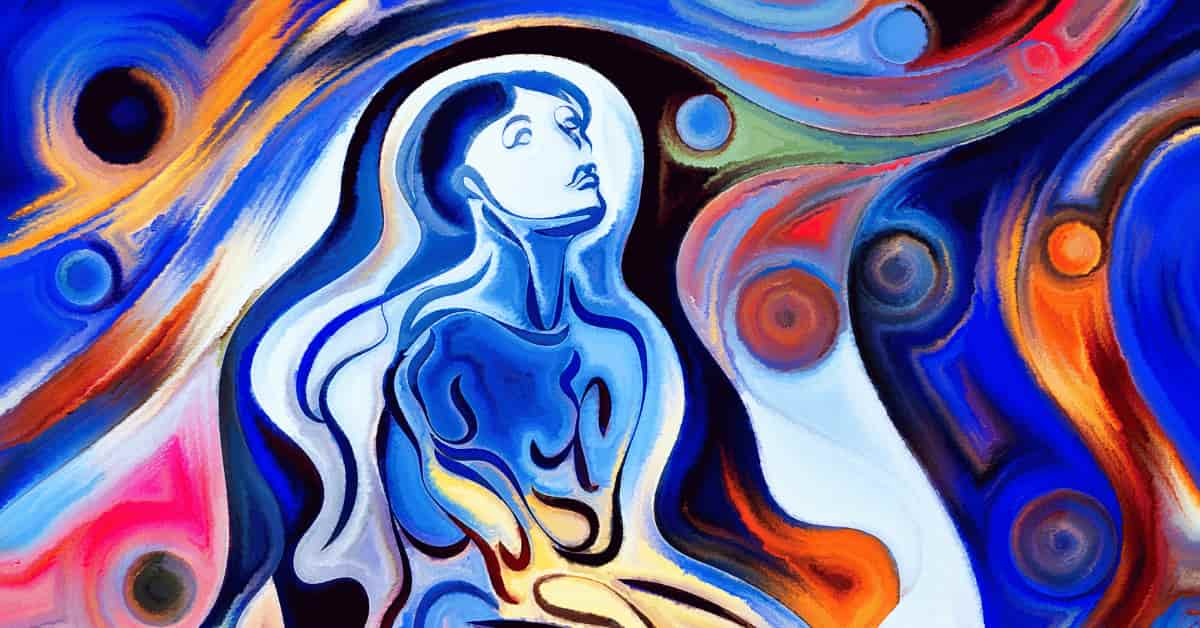
Research Findings on CFT for Social Anxiety
- Promising Results: Initial pilot findings indicate that CFT shows promise in addressing self-compassion, shame, self-criticism, and social anxiety, with variable participant response. This was highlighted in a study by Boersma et al. in 2015, which emphasized its potential, especially for those grappling with the weight of social anxiety.
- Addressing Adolescent Concerns: Another study by Gill et al. in 2018 highlighted the potential of nurturing self-compassion for addressing adolescent social anxiety. The research pointed out the inverse relationship between self-compassion and social anxiety, suggesting that increasing the former could potentially alleviate the latter.

C. Mindful Self-Compassion (MSC)
Mindful Self-Compassion, or MSC, is another therapeutic approach that places self-compassion at its core.
While it shares some similarities with CFT, MSC has its unique principles and practices, primarily rooted in mindfulness.
Origins and Principles of MSC
Developed by Dr. Kristin Neff and Dr. Christopher Germer (2013), MSC is designed to teach individuals the art and skill of self-compassion.
It combines the principles of mindfulness, which is about being present and fully experiencing the moment without judgment, with the active cultivation of self-kindness.

How MSC Works
- Mindfulness: At the heart of MSC is the practice of mindfulness. It teaches individuals to observe their thoughts and feelings without judgment or the urge to change them. This non-judgmental observation allows one to see self-critical thoughts for what they are: just thoughts.
- Common Humanity: MSC emphasizes the understanding that everyone suffers, makes mistakes, and has imperfections. Recognizing this shared human experience can reduce feelings of isolation, especially prevalent in those with social anxiety.
- Self-Kindness: Instead of being harsh and critical, MSC encourages individuals to be kind and understanding towards themselves, especially during moments of pain or perceived inadequacy.
- Practical Exercises: MSC involves various practical exercises, such as loving-kindness meditation, that are designed to cultivate a compassionate mindset.

Research Findings on MSC for Social Anxiety
- Alleviating Symptoms: A study by McBride et al. in 2022 found that cultivating self-compassion effectively alleviates social anxiety symptoms. This underscores the therapeutic potential of MSC in providing relief to those suffering from social anxiety.
- Protective Attributes: The same study also highlighted that self-compassion provides protective attributes against the development of social anxiety. This suggests that MSC can be both a reactive and proactive approach to managing social anxiety.
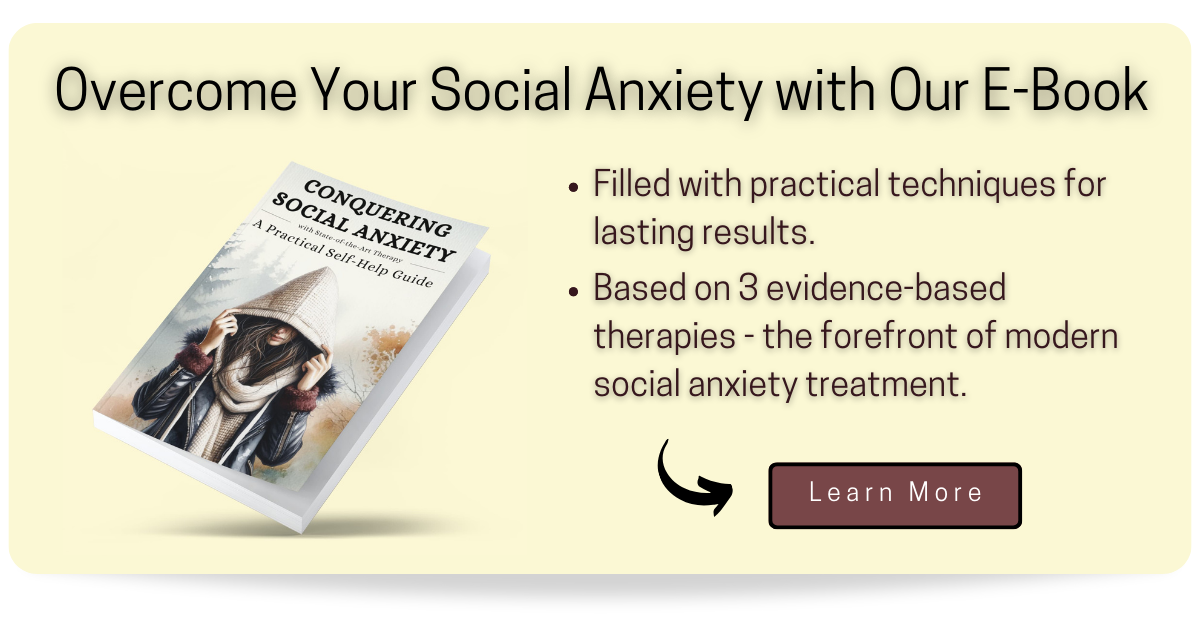
D. How Compassion-Based Therapies Address Social Anxiety
Social anxiety, often rooted in a fear of negative judgment and a harsh inner critic, can be a paralyzing experience.
Compassion-based therapies offer a unique lens through which we can understand and address the core issues of this condition.
1. Countering the Fear of Negative Evaluation
At the heart of social anxiety is the fear of being judged or evaluated negatively by others. Compassion-based therapies, by nurturing self-kindness, provide a counter-narrative to this fear. When one learns to be less judgmental towards oneself, the perceived judgments of others also lose some of their sting.

2. Transforming the Inner Critic:
Social anxiety often comes with a persistent and harsh inner critic. Through practices like mindfulness and self-kindness exercises, individuals learn to recognize this inner voice, understand its origins, and gently challenge its narratives.
3. Building Resilience through Self-Compassion:
Resilience, the ability to bounce back from adversity, is crucial for managing anxiety. Compassion-based therapies, by fostering a kind and understanding relationship with oneself, build this resilience. When setbacks occur, such as an awkward social interaction, individuals equipped with self-compassion can recover more quickly and with less distress.

4. Reducing Feelings of Isolation:
Social anxiety can lead to feelings of isolation and loneliness. Recognizing our common humanity, a core principle in MSC, helps individuals see that they are not alone in their struggles. This sense of interconnectedness can be a powerful antidote to the isolation that social anxiety often brings.
5. Empowering through Compassionate Action:
Compassion is not just a passive feeling; it’s an active response. By cultivating compassion, individuals are not only alleviating their own suffering but are also empowered to engage more positively with the world around them. This can lead to more fulfilling social interactions and a reduction in anxiety.

E. Additional Resources
For those intrigued by the potential of compassion-based therapies and eager to delve deeper, there are a plethora of resources available.
Whether you’re seeking self-help books, online therapy platforms, or mindfulness apps, there’s something to cater to every need.

Recommended Books
“The Compassionate Mind” by Dr. Paul Gilbert: A foundational text on Compassion-Focused Therapy, this book delves into the evolutionary basis of our emotions and offers practical exercises to cultivate compassion. You can find the book here.
“Self-Compassion: The Proven Power of Being Kind to Yourself” by Dr. Kristin Neff: A deep dive into the concept of self-compassion, this book combines personal anecdotes with research-backed insights. You can find the book here.
“The Mindful Path to Self-Compassion” by Dr. Christopher Germer: This book offers practical techniques to free oneself from the grip of self-criticism and enhance one’s life with the strength of self-compassion. You can find the book here.

Online Therapy
BetterHelp is a leading online therapy platform that offers a diverse range of therapeutic approaches tailored to individual needs.
Among their skilled therapists, many employ compassion-based principles, emphasizing the importance of self-compassion in the healing process.
When signing up, users have the opportunity to specify their therapy preferences.
If you’re seeking a therapeutic journey rooted in compassion, simply mention your desire for a therapist who emphasizes compassion-based principles.
With BetterHelp, personalized, compassionate care is just a click away. You can sign up or simply have a look by clicking below.

Mindfulness & Compassion App
Headspace: Renowned for its user-friendly interface and a wide range of guided meditations, Headspace offers sessions specifically focused on compassion. These can be a great starting point for those new to the practice or looking to integrate it into their daily routine.

F. Conclusion
The journey through the landscape of social anxiety can often feel isolating and overwhelming.
Yet, as we’ve explored in this article, there are therapeutic approaches rooted in compassion that offer a beacon of hope.
Compassion-Focused Therapy (CFT) and Mindful Self-Compassion (MSC) are not just about alleviating symptoms; they’re about transforming our relationship with ourselves, turning the inner critic into a compassionate ally.
Research consistently underscores the potential of these therapies. From addressing the core issues of shame and self-criticism to offering protective attributes against the development of social anxiety, the evidence is compelling.

But beyond the research, there’s the undeniable human element: the profound relief and healing that comes from being kind to oneself.
For those grappling with social anxiety, the message is clear: You are not alone, and there are tools and resources available to support you.
Compassion-based therapies, with their emphasis on self-kindness, understanding, and common humanity, offer a promising path forward.
In a world that often feels judgmental and demanding, cultivating an inner sanctuary of compassion can be revolutionary.
It’s a journey of self-discovery, resilience, and healing. And for those willing to embark on it, the rewards can be transformative.

If you’d like to delve deeper into the various therapeutic strategies for social anxiety, we encourage you to explore our comprehensive therapy guide by clicking here.
For a holistic perspective that encompasses therapy, medication and self-help techniques, our detailed guide awaits you here.
For those considering medication as a potential avenue, our comprehensive guide to pharmacotherapy for social phobia offers ideas and information. Find out more about medication options by clicking here.
Still got questions on your mind? Take a clarifying journey with our free 7-day e-mail course. We’re committed to guiding you every step of the way on this path of discovery and empowerment.

Boersma, K., Hakanson, A., Salomonsson, E., & Johansson, I. (2015). Compassion Focused Therapy to Counteract Shame, Self-Criticism and Isolation. A Replicated Single Case Experimental Study for Individuals With Social Anxiety. Journal of Contemporary Psychotherapy.
Gilbert, P. (2020). Compassion: From Its Evolution to a Psychotherapy. Frontiers in Psychology.
Gill, C., Watson, L., Williams, C., & Chan, S. W. Y. (2018). Social anxiety and self-compassion in adolescents. Journal of adolescence, 69, 163–174. https://doi.org/10.1016/j.adolescence.2018.10.004
McBride, N. L., Bates, G. W., Elphinstone, B., & Whitehead, R. (2022). Self-compassion and social anxiety: The mediating effect of emotion regulation strategies and the influence of depressed mood. Psychology and psychotherapy, 95(4), 1036–1055. https://doi.org/10.1111/papt.12417
Neff, K. (2007). Self-compassion and adaptive psychological functioning. Journal of Research in Personality, 41(1), 139-154.
Neff, K. D., & Germer, C. K. (2013). A pilot study and randomized controlled trial of the mindful self-compassion program. Journal of clinical psychology, 69(1), 28–44. https://doi.org/10.1002/jclp.21923
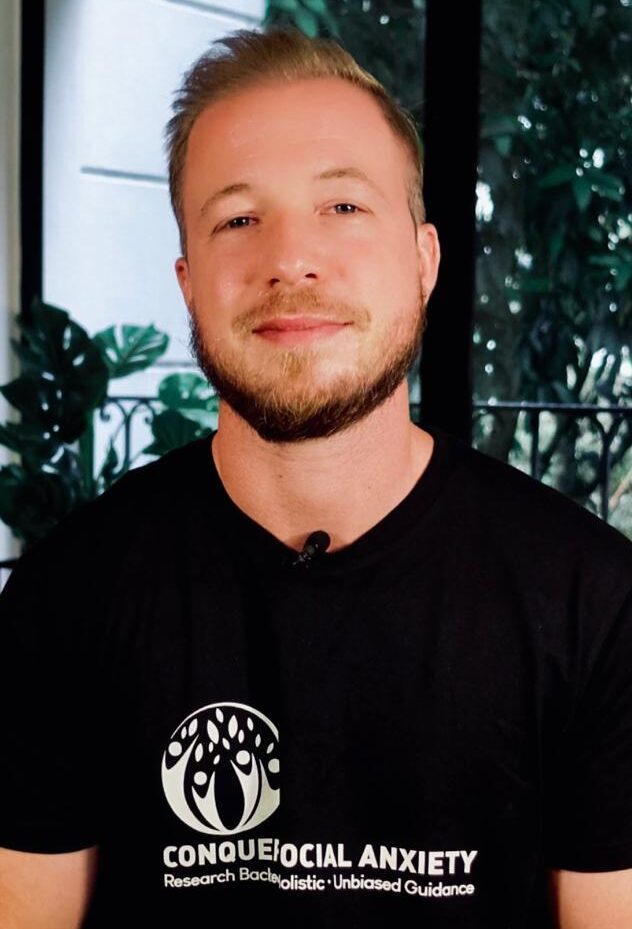
About the Author: Martin Stork
Martin is a professional psychologist with a background in physical therapy. He has organized and led various support groups for people with social anxiety in Washington, DC and Buenos Aires, Argentina. He is the founder of Conquer Social Anxiety Ltd, where he operates as a writer, therapist and director. You can click here to find out more about Martin.







